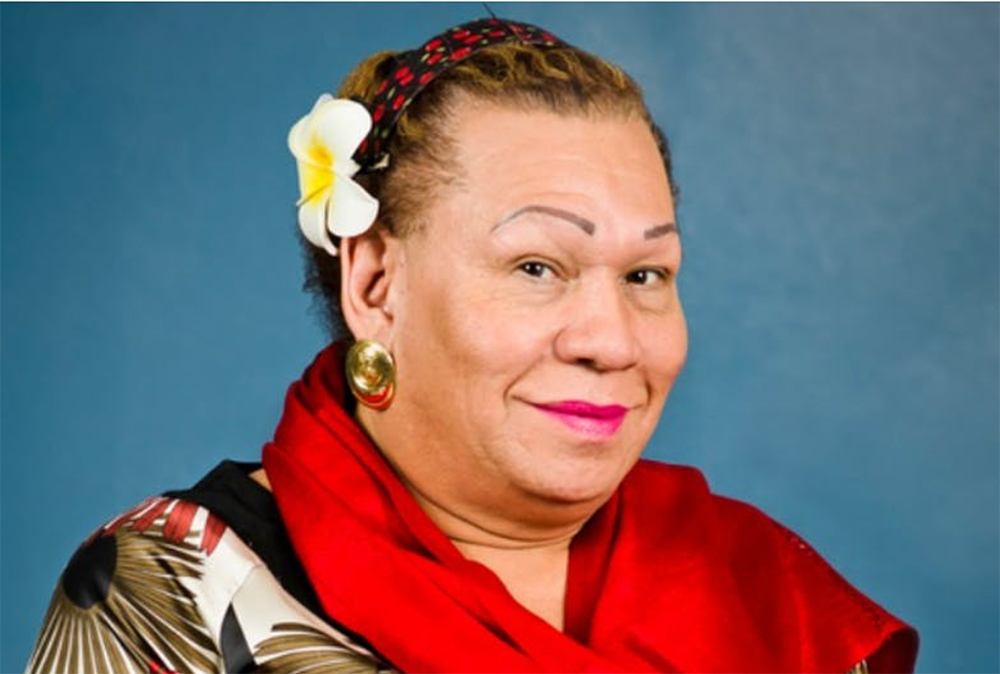
Aged 19 and incarcerated on Rikers Island, Bianey Garcia and a friend — victims of a homophobic attack that had led to their arrests, Garcia says — needed help. They called Lorena Borjas.
A pillar of New York City’s Latinx LGBTQ community, Borjas had long been known as a staunch defender of the rights of trans people, Latinx people, undocumented people and sex workers. Borjas helped Garcia and her friend obtain a lawyer, who won their case and later helped them get immigration papers to stay in the U.S. A decade later, Garcia is now a justice worker with New York City-based advocacy organization Make the Road. “Lorena was like a mother for many in the transgender community,” Garcia tells TIME. “She used to help anyone.“
On Monday, March 30, Borjas died from complications related to coronavirus, officials announced, a loss that has rocked the trans community of Queens, N.Y., and beyond. She was 60, per NBC New York.
“Lorena Borjas was a real hero for trans people, especially in Queens. She was a leader, a builder and a healer,” Mara Keisling, the executive director of the National Center for Transgender Equality, said in a statement. “The NCTE family is saddened by her passing and has her broad family and the Queens Latinx community in our hearts today.”
Borjas had been a prominent community organizer and health educator for decades, working to end human trafficking, which she herself survived, according to the Transgender Law Center. In 2017, she received a rare pardon from New York Governor Andrew Cuomo for a conviction she received in the 1990s while being trafficked, with Gov. Cuomo praising her advocacy work in New York state. (The conviction had put Borjas, a Mexican national, at high risk of deportation.)
Her community health work included a HIV testing site Borjas set up in her own home, and a syringe exchange program for trans-women using hormone injections, according to Gov. Andrew Cuomo’s office. In 2012, she and activist Chase Strangio co-founded the Lorena Borjas Community Fund, which helped cover bail and pay legal fees for for LGBTQ immigrants.
Just a few weeks ago, Borjas set up a fund for trans-people who had lost their jobs to COVID-19, the disease caused by novel coronavirus.
Activists and community leaders across New York City took to social media after the news of her death broke.
“Lorena was honestly one of the most amazing women I’ve ever met,” Lynly Egyes, the legal director of the Transgender Law Center, tells TIME. “She was an activist, a warrior, a mother to so many.”
Egyes, 38, says she first met Borjas while working for the Sex Workers Project at the Urban Justice Center. At the time, Egyes remembers she was representing two incarcerated transgender women; Borjas “just showed up” with a much-needed birth certificate for one of the women, pulling it out of the Mary Poppins roller bag she always carried with her. “You never knew what was in there,” Egyes laughed.
Egyes later represented Borjas while campaigning for her pardon, and says she she received scores of letters during that time from people who said “Lorena literally saved my life.” They told Egyes about times Borjas protected them from an abusive partner or took them into her home when they had nowhere else to go. “That wasn’t an uncommon story about Lorena,” Egyes says. “[She would] provide services and resources to anyone who just got to New York City and needed a hand or help,” she continues. “And she did this without pay. She just did it because it was the right thing to do.”
“What I lived through helped me fight for justice for my sisters,” Borjas said in a 2018 interview. “My goal in life is to help them in everything I can.”
Cristina Herrera, the CEO and founder of the non-profit Translatinx Network, describes Borjas as an outgoing and resourceful woman who was “determined to make her visions come true.” Over the 32 years the women knew each other, Herrera, 49, tells TIME she watched Borjas grow into a respected and powerful community leader. “She was a source of strength for many of us,” Herrera adds.
“She’s made the world better so selflessly, so humbly, without often any type of recognition,” Egyes says. “I think she taught everyone she knew about how to be a better person.”
More Must-Reads from TIME
- Donald Trump Is TIME's 2024 Person of the Year
- Why We Chose Trump as Person of the Year
- Is Intermittent Fasting Good or Bad for You?
- The 100 Must-Read Books of 2024
- The 20 Best Christmas TV Episodes
- Column: If Optimism Feels Ridiculous Now, Try Hope
- The Future of Climate Action Is Trade Policy
- Merle Bombardieri Is Helping People Make the Baby Decision
Write to Madeleine Carlisle at madeleine.carlisle@time.com